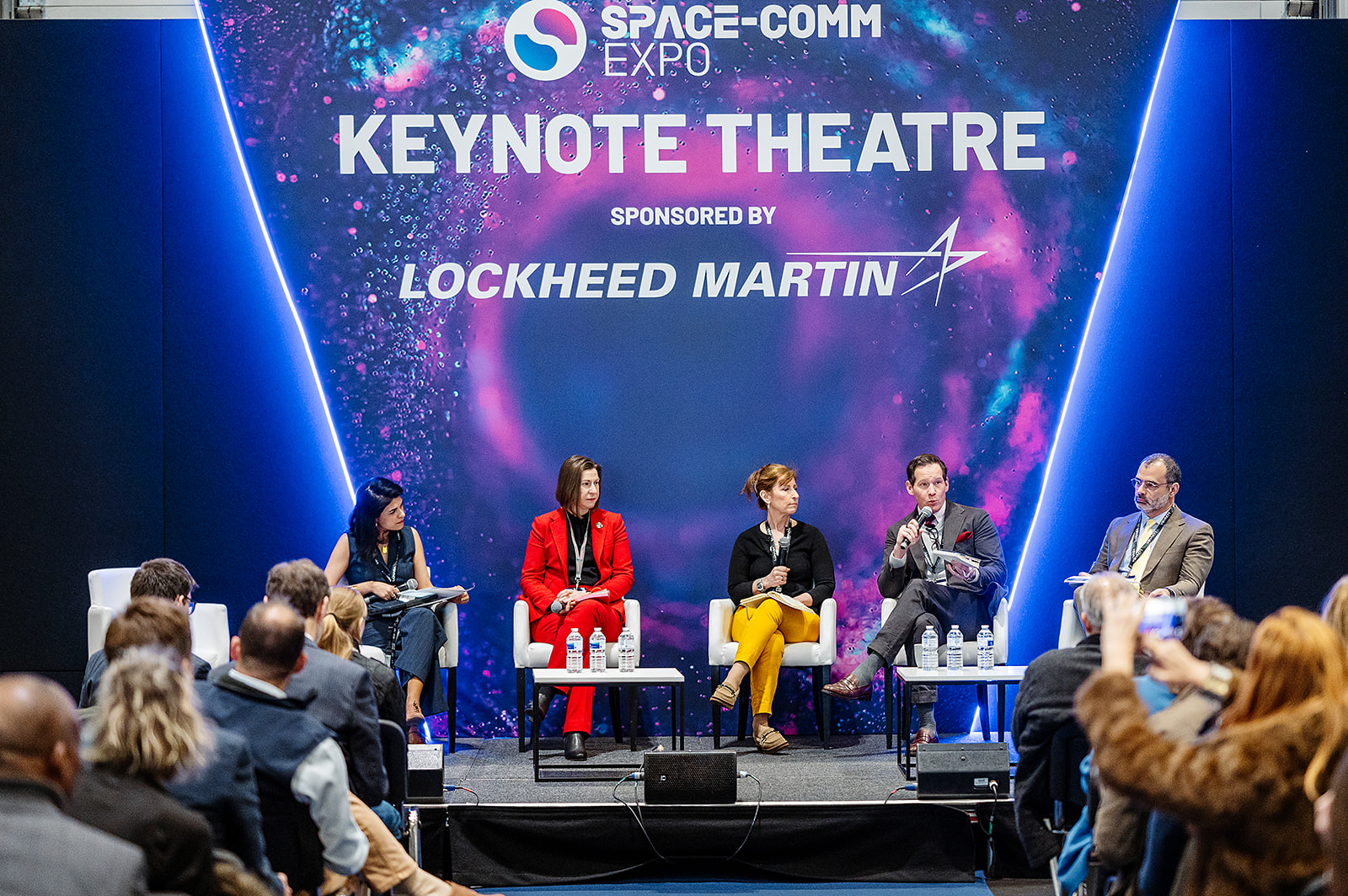Manchester to host 2025 UK Space Conference

Image courtesy UK Space Agency
Sponsored by the UK Space Agency, the biennial event brings together organisations with an interest in space to meet, network, discover business opportunities and help shape the future of the space sector. The event will be held at Manchester Central on 16th to 17th July 2025.
Dr Paul Bate, Chief Executive of the UK Space Agency, said: "Following successful conferences in Newport and Belfast, and after opening new satellite offices across the UK this year, we are excited to host the UK Space Conference in Manchester, the world’s first industrial city.
"We look forward to welcoming attendees from across the UK, forging new collaborations and championing the benefits of the space industry as a key provider of jobs, prosperity and innovation."
The UK space sector generates £18.9 billion and employs 52,000 people - and supports critical national Infrastructure, including energy grids and healthcare services.
Colin Baldwin, Executive Director of UKspace, official trade association of the UK space industry, said: "UKspace is delighted to be supporting the 2025 UK Space Conference. This biennial event, organised by and for the sector through our strong and connected ecosystem, brings us together to discuss key issues and opportunities including addressing skills challenges, supporting fit-for-purpose regulation, spreading sustainability standards and promoting private investment – all of which underpins the long-term health of the sector.
"This first UK Space Conference under the new government will enable the sector to showcase how it plays a significant role in the delivery of the Government’s five missions – high growth, safer streets, clean energy, opportunity for all and a society that is fit for the future."
In the early 19th century, the rapid growth of Manchester’s cotton industry drove the town’s expansion, putting it at the heart of new, global networks of manufacturing and trade. The city is now the heart of the wider region’s thriving space sector, which comprises over 180 organisations and over 2,300 space professionals – collectively termed the North West Space Cluster.
Companies based in Manchester include graphene specialists Smart IR, who are using breakthrough technology to control infrared thermal radiation and Graphene Innovations Manchester, who have ambitions to develop human rated graphene space structures. MDA Space UK is expanding their workforce and operations in all their UK locations, including their site near Manchester Airport, where their growing team designs and delivers digital systems and payloads for telecoms satellites.

Above: A night time view of Manchester from space.
Courtesy NASA
The North West sector has been supported by investment from the UK Space Agency’s Local Growth initiative and STFC’s (Science and Technology Facilities Council) industrial cluster development, which is helping to drive its expansion, accelerate innovation and seize commercial opportunities.
STFC’s Alan Cross, Development Manager, North West Space Cluster, said: "From Jodrell Bank’s early breakthroughs to launch vehicle testing at Spadeadam in Cumbria, the North West has a proud legacy of driving space exploration and innovation. Today, as the UK reaches for new frontiers, the North West’s space sector is thriving.
"Manchester’s satellite manufacturing and the University of Liverpool’s missions to the International Space Station are just two standout examples of this, and the UK Space Conference 2025 in Manchester will showcase this vibrancy and progress."
Dr Phil Carvil, Head of STFC’s North West Cluster Programmes said: "As we leverage space to tackle 21st-century challenges and prepare for humanity’s return to the Moon, the North West Space Cluster is excited to welcome the UK Space Conference 2025 to Manchester.
"Our businesses and institutions across the region are leading the way in space innovation and collaboration, inspiring our next generations that they too can take part in shaping the future of space and benefiting society as a whole."
Renowned for being the birthplace of scientists James Joule and John Dalton, and sparking their discoveries in thermodynamics, meteorology and atomic theory, the region now boasts world class expertise in materials science and has unique capabilities in nuclear materials for deep space applications. A University of Manchester lab holds a world-leading range of equipment for simulation of and experimentation into material behaviours in the extreme conditions of space exploration.
The largest scientific instrument in Human history, the Square Kilometre Array Observatory, is headquartered in Cheshire alongside the University of Manchester’s prestigious Jodrell Bank Observatory. With investment from both the UK and European space agencies, the National Nuclear Laboratory is also developing the next generation of deep space power systems in Cumbria.
Kevin Craven, CEO of ADS Group said: "The UK space sector is growing, unlocking significant opportunities for economic growth throughout the UK whilst delivering innovative solutions to domestic and global challenges.
"I’m delighted to see the UK Space Agency take its biannual conference to Manchester and we look forward to the event as an integral part of the space sector calendar."
In 2023 the UK Space Conference was hosted at the ICC in Belfast and brought over 1,700 leaders together from national and international industry, government and academia to Northern Ireland for three days and generated a direct economic impact of £1.7 million through visitor spend alone. Local stakeholders in Northern Ireland reported that bringing the conference to Belfast provided Northern Ireland with a unique opportunity to promote its capabilities to an influential global space audience as well as to exchange ideas, plans and encourage development and success in the emerging space age.













